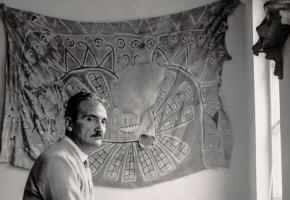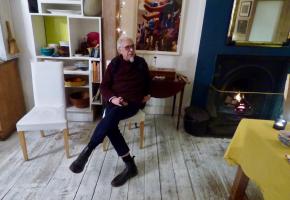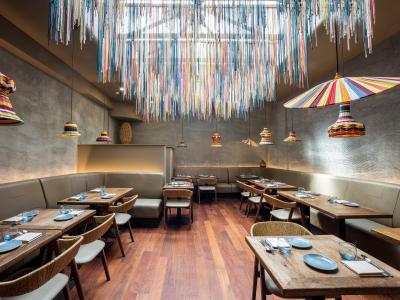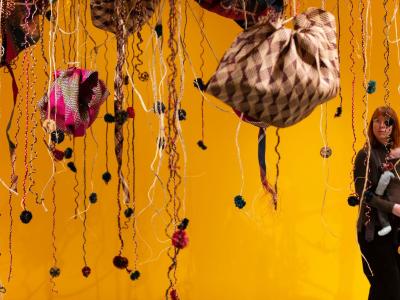When, aged 15, I first opened ‘The House of the Spirits’, I knew little about Chile, let alone magical realism. Allende’s work transported me into a mesmerising world of clairvoyants, mermaid-haired beauties, and a dark political past coloured by violence. The Chilean-born author’s writing is unapologetic in its biting portrayal of political injustice, placing women at the centre of history, unlike many of her male counterparts. ‘The House of the Spirits’ started my love affair with Latin American fiction, so you can imagine my delight and excitement when I was asked to interview Allende to discuss her latest, and truly compelling, novel, ‘A Long Petal of the Sea’.
I’m told to phone the landline in her study, and she picks up instantly. She’s immediately warm and friendly, putting me at ease, her Californian accent revealing just a subtle hint of her Chilean roots. Like me, Isabel is holed up in her house by Covid19, the great equalizer of the moment between a great novelist and a mere fan by opening an immediate window into her personal life:
“It’s very interesting because now for the first time Roger [her partner] and I can’t get out, because we are in that age bracket where we are not supposed to go anywhere,” Allende explains animatedly. “So we are locked in our house and the house is really small, it only has one bedroom. When I divorced my former husband, we had a large house, and I decided to live alone in a very small place. So I bought this house, never imagining that someone else would come into my life and so now I have this big Polish guy in my house, and it’s like having a bull in a crystal shop! I work at home and there’s no space. So right now, while I’m talking to you on the phone, he has to go running with the dogs because I can’t have the dogs barking and I can’t have him making any noise.
‘’I wonder if we are going to survive this experiment,” she says, chuckling quietly to herself. “In fact, a friend of mine said you should write a book called ‘Love in the Time of Corona’!”
I tell her I’d certainly read it, to which she laughs again, before talk turns to her new book. The narrative of ‘A Long Petal of the Sea’ spans several decades as it tells the story of how two Spaniards navigate first the horrors of the Spanish Civil War, and then, when they flee to Chile as political refugees, the cruelty of Pinochet’s regime. Victor and Roser, the novel’s protagonists, are given the opportunity to escape to Chile with hundreds of other Spanish refugees on the Winnipeg, the rescue boat organised by the Chilean poet and Nobel Prize winner Pablo Neruda.
In this latest book, the magical realism of Isabel’s first novel, ‘The House of the Spirits’, has been put to one side in favour of a political realism which suits the barbarity which its characters are subjected to. I make the mistake of asking her whether she considered writing the novel as a magical realist work, which she answers with a sigh. “No. Magical realism is not like salt and pepper which you can sprinkle on everything. It either fits in the story or doesn’t.” I move swiftly on.
Perhaps one of the most unusual and refreshing aspects of the novel is its exploration of love and passion between characters in their old age. Her characters continually develop throughout the novel, and take on a 3-Dimensionality which is particularly engaging.
I ask Allende if her perception of love has changed over her lifetime. “Of course,” she says, amused. “I think all kinds of love are possible. Look, I got married at 77 so I know that you can fall in love at any age. People ask me how is it to fall in love at your age? Well, it’s the same as falling in love when you are young, when you are twenty, but with a sense of urgency, you have no time to waste! How many years do I have ahead of me with Roger…? Not many. So there is no time for impatience, for intolerance, for pettiness, for little stupid games. All the stuff that messes up a relationship - you have to be very careful about that.”

It was from her grandfather that Allende first heard the story of the Winnipeg and much of her writing is inspired by generational storytelling. “My first and second books, in particular, are based on stories that I heard or that I lived in Chile, and I always come back to that. The strongest memories are the memories from childhood. I have had a strange life with lots of ups and downs, lots of success but also tragedy, so I could draw from there, but somehow I always keep going back to the house of my grandfather in Chile,” Allende reminisces, now sombre. The tragedy she refers to, of course, is the death of her daughter Paula, aged only 29, a life-shattering event which Allende chronicles in her 1994 memoir of the same name, ‘Paula’. Indeed, death pervades every chapter of ‘A Long Petal of the Sea’, its pages haunted by the countless victims of the novel’s events.
“I had a friend called Victor who really lived the experience,” Allende explains of the character of the same name in the novel. “He lived in Barcelona, he was in a concentration camp, he was rescued by Pablo Neruda, and sailed on the Winnipeg to Chile. And I kept it in my head for forty years. I don’t know why but it seemed like this was the right time to tell it.”
Although the story happened many years ago, Allende is right that it feels very contemporary. With the current worldwide refugee and migrant crisis, ‘A Long Petal of the Sea’ is highly topical in its exposition of the often fragmented identity of those who end up having to leave their homeland.
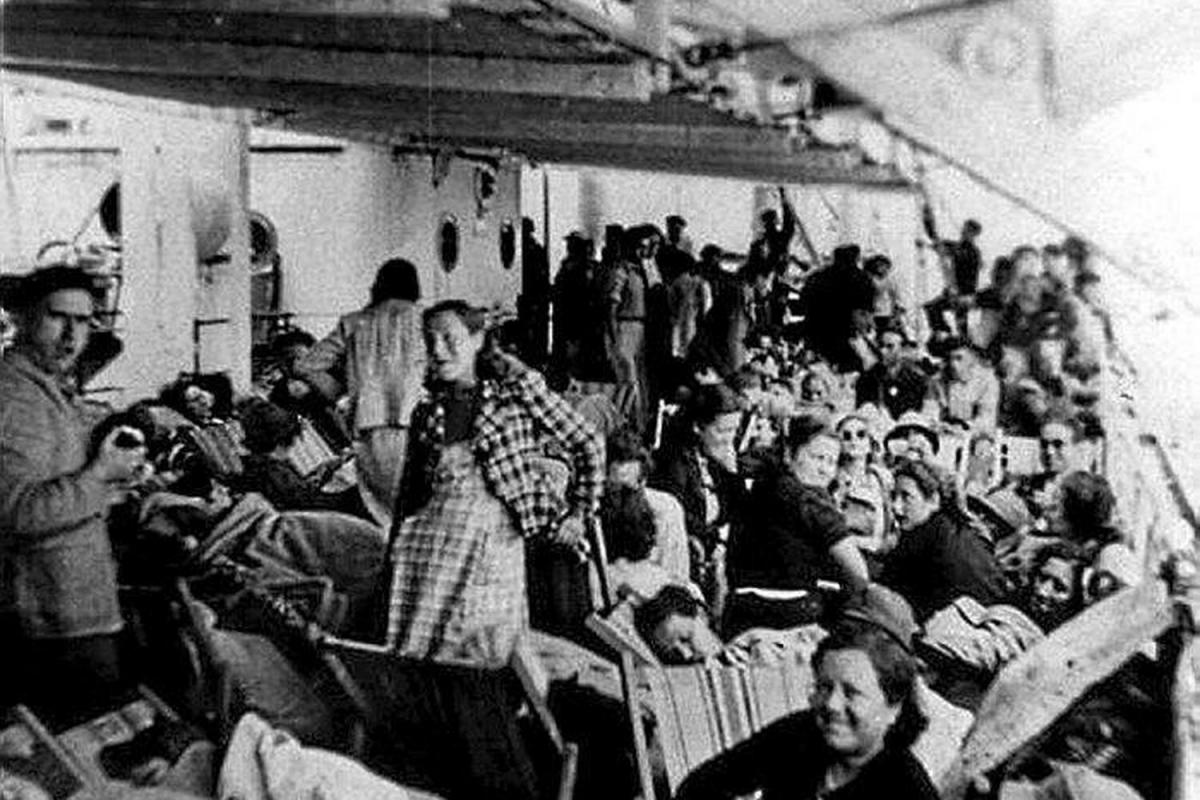
refugees from the Spanish Civil War aboard the winnipeg
“You know, my last three books, ‘The Japanese Lover’, ‘In the Midst of Winter’, and now this one, ‘A Long Petal of the Sea’, the three of them touch on refugees and migrants,” Allende says, her voice filled with urgency. “Maybe because it’s in the air, it’s in the collective consciousness. We are all hearing about it. There are right now around 72 million refugees in the world and most of them are women and children.”
The migrant issue is also one that Allende has experienced personally; she was forced to flee Chile in 1973, after her godfather, Chilean president Salvador Allende was overthrown in the military coup that year. She stayed in Venezuela for 13 years, an experience which informed much of her writing.
It was in Venezuela where she met the inspiration for her protagonist, Victor Dalmau. “He had a reputation for being mysterious, but nobody knew anything about his private life, if he was married, if he wasn’t, if he was a CIA spy, because he didn’t say anything about himself.” Allende says, laughing. “And in Venezuela somehow we became friends. He was older than me by many years but we connected, and so he started telling me his story then.”
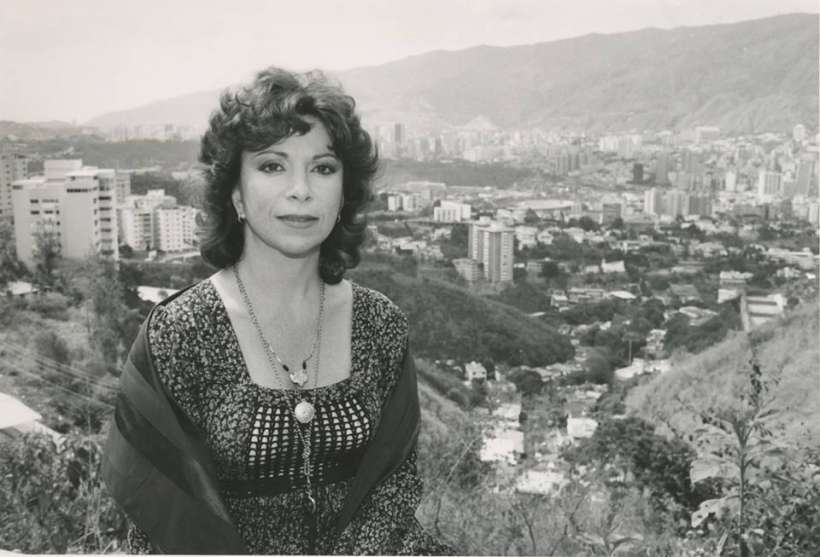 Isabel Allende in Caracas
Isabel Allende in Caracas
Tragically, the real life Victor died six days before Allende could send him the manuscript for the book, a heartbreaking detail which adds a real layer of poignancy to the book.
Allende comes truly alive when discussing Chile. Particularly, Chile’s inequality and class system, an issue which acts as a recurrent theme and source of tension in the novel. Her voice fills with passion as she tells me, “Santiago is one of the most divided cities in the world. The city has that bad reputation because even in India where castes are so prevalent you have people mixed, you can have slums near a palace. But that doesn’t happen in Chile, the rich don’t have to see the poverty, they never travel through it.”
I go on to ask her what she thinks about the recent protests in Chile. She quickly and fervently reponds, “well, it was a huge surprise for the Chilean government, the political parties, and the world because Chile appeared as Latin America’s only country with political and social stability. But what statistics don’t show is the inequality, the unequal distribution of resources and opportunity. Forty percent of the population in Chile cannot afford basic services. You go to the supermarket in Chile to buy groceries and they ask you if you want to pay in instalments. Everything, everything you can pay for like that and Chile has incredibly high interest, so people can never catch up and they live in a hidden kind of poverty.”
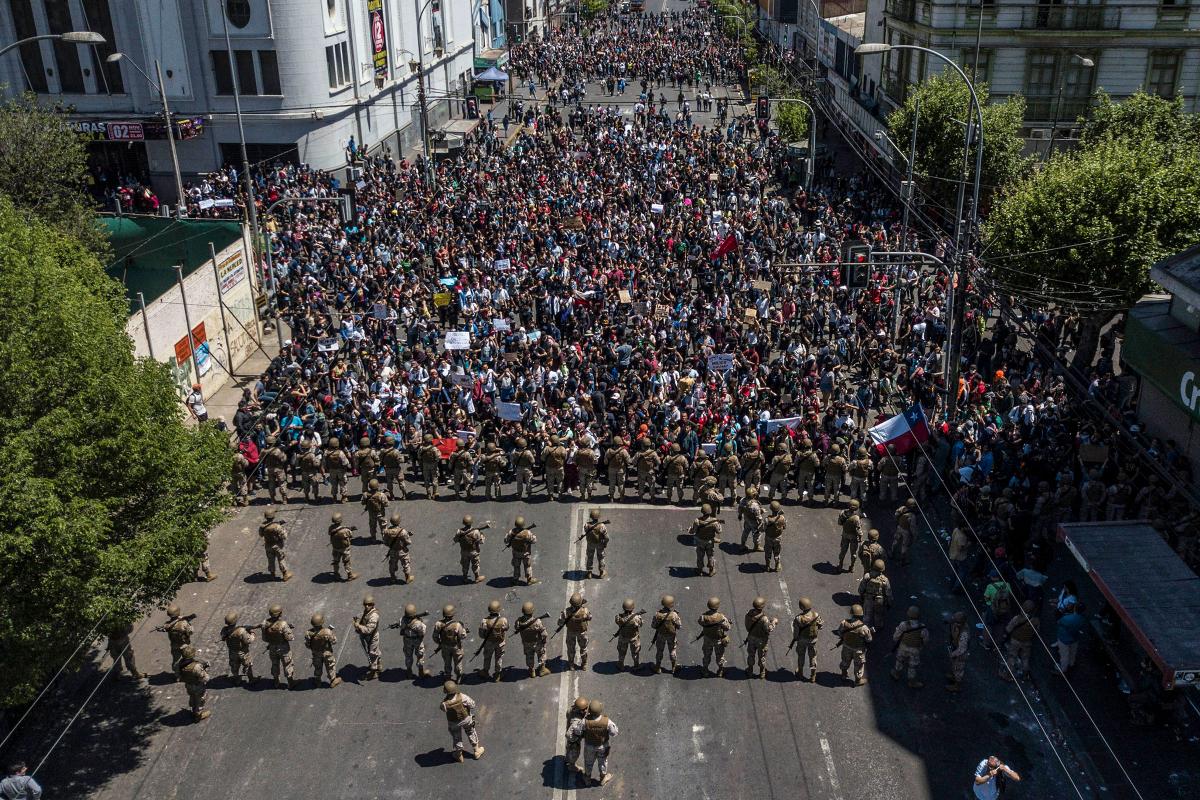
recent protests in chile (2019) about the country's inequality
The passion in Allende’s voice is clear, and it reminds me of how studying Allende’s works at university was a breath of fresh air in a course filled entirely by male authors. But being a female author in a heavily male-dominated literary world can’t have been easy, and I ask Allende what her experience has been:
“It’s been hard”, she laments, her voice serious again. “I came at the end of the boom of Latin American literature and, because women’s voices had been silenced and ignored for centuries, I was received with difficulty by Latin America. My first book, ‘House of the Spirits’, became very successful in Europe, but in Chile the critics were very harsh on me. Even to the point where I had written twenty books which had been translated into 40 something languages, I’d received 60 international awards, yet the critics in Chile still did not consider me a writer, dismissing me as a simple storyteller. I remember when I was nominated for the National Literary Award, which is the highest award you can get in the country, some absolutely awful things were said about me.”
But Allende had the last laugh, receiving the National Literary Award, to which she affirms, “they finally treated me with some respect.” The Chilean also received the Presidential Medal of Freedom from Barack Obama, along with many other awards.

She thanks me again for reading the book, and we say goodbye. As the line goes dead I think about how nervous I felt before speaking to this legend of Latin American literature and, perhaps selfishly, whether she would live up to my expectations. She was funny, passionate and dazzlingly intelligent; respect for this magnificent writer is certainly due.
‘A Long Petal of the Sea’ is published by Bloomsbury. More info here




